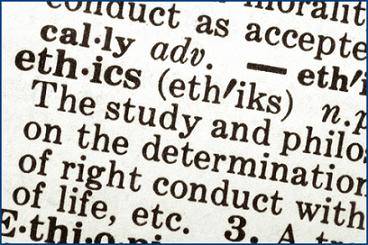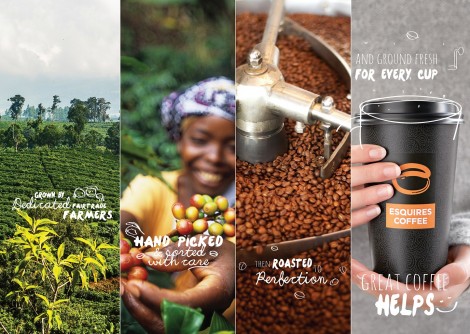ETHICAL COFFEE Part 1 – What Is Ethical Coffee?
- 9 Aug 2017
What Do We Mean When We Talk About ‘Ethical Consumption’
Before we start talking about ethical practices in the coffee industry, let’s first touch on what ethics are. Ethics can be defined as: ‘moral principles that govern a person's behaviour or the conducting of an activity.’ [1]

Ethics are our moral compass, and they tell us when we are engaging in something fundamentally ‘wrong’ even though the laws may say otherwise.
For example, is it illegal to market junk food to children via television advertising, during the hours that they are typically watching their television shows? No, it’s not, BUT we know it’s ethically wrong. In response, television and advertising agencies have had to change their approach, as people become more aware of the effects on both children’s health and parents’ sanity.
Most of us would agree that it’s wrong to target a market with a questionable product or offering when they are unable to make an informed decision, or, are vulnerable because they may not have any alternative to choose from. It would be an unethical practice, even though it might be legal.
Ethical Ideals & Intentions
When consumers think of ethical coffee, or ethical products in general, they have a certain picture in their minds:

-Workers are happy, safe and paid fairly;
-Workers have access to reliable housing;
-Workers have access to education for themselves and their children;
-Children are exempt from working and not prey to child labour;
-They have access to food and clean water;
-Any potential damage to the environment during production should be minimized or mitigated;
-Farms and factories (where the product is produced) have well maintained equipment and safe working practices.
All of these imaginings are valid, they are the very reason that the push for more ethical coffee exists, and in answer to this push governing bodies were formed and legal agreements were instituted. But it’s been a long road to get to where we are now, and we have longer yet to go before things truly measure up to the consumer’s ideal of ethical coffee.
It seems simple from the outside looking in, as many things initially do — “Pay them more, treat them better, and look after our planet!” However, barrelling in on a high of good intentions and a sense of justice can do more harm than good and, for many reasons, become the cause of the very injustices or problems these good-intentions are trying to repair.
In a perfect world, when we see an injustice we would be able to make the decision to change it for the better instantaneously. On a small scale this is perfectly achievable, and only minimal discomfort felt by those affected whilst they adjust to the change and new processes. The larger the organization though, the more difficult it is to instigate changes and establish a significant pace at which change happens. This is because there are more people to consider and each of these people work at different levels of the organization, working towards different goals they need to achieve.
It’s very easy to say “Well, just make it illegal for coffee producing farms to pay their workers less than (what we consider ethnocentrically) a fair wage”. In practice, that farmer may not have the money to do so, which would mean the farmer would lose his farm or they might sacrifice upgrading to safer equipment to pay workers more. The domino effect is that instead of helping workers, we have lost them their jobs or put them into a potentially dangerous workplace, and there is less product going into the market or more workplace death and/or accidents. Perhaps they cannot afford to pay what we consider fair wages because they cannot get a fair price for their coffee, due to government regulations that favour corporate gain over the farmer and the effect rolls on.
There is no easy solution when there are many complex social, economic, geographic, environmental, governmental and cultural barriers that all need a diplomatic and sustainable solution to be proffered in order to effect real lasting change. In saying that, the goal of an ethical coffee industry is still extremely worthwhile pursuing.
The Goals of the Ethical Coffee Movement
The goal of the ethical coffee movement is to address the ideals of consumers, and it comes from a place of both sincerity and corporate gain. Businesses have realized that consumers care about workers’ rights and working conditions, environmental impact and democratic organization. The reality is that they are listening because it makes them a profit to do so, which is the case with many ethical issues that have come into focus over the last 100 years.

Like any movement of substance, the public made noise and they kept making noise until their voices were heard, and their displeasure started to affect the financial bottom line of companies. As those voices started to be taken seriously, people who passionately and genuinely care about these values entered the workforce of these big businesses, and tangible change started to trickle through.
Ultimately, the ethical coffee movement aims to facilitate mutually beneficial relationships between producers and traders, as well as business and consumers. They must come up with solutions to issues that benefit everyone involved, otherwise some or most of these groups won’t come to the party. Naturally, this takes a lot of time and discussion to achieve and while all this is on-going, our consumer activists have to stay noisy or the movement loses relevance.
So, while the problems within the coffee industry are complex, they are not impossible to solve. The ethical coffee movement is an extremely worthwhile cause that needs the attention of businesses and consumers alike, requiring a multi-faceted approach.
Read More:
- Part 2 - The Development of Ethical Coffee
- Part 3 - Fairtrade International: Why It Works & Limitations
- Part 4 - Other Players in Ethical Coffee
- Part 5 - The Most Ethical Consumption of Coffee
Sources:
- en.oxforddictionaries.com/definition/ethics
- fivesenses.com.au/blog/what-is-ethical-coffee
- theguardian.com/sustainable-business/2015/may/29/drinking-an-ethical-cup-of-coffee-how-easy-is-it
- befair.be/en/content/4c-association
- ethical.org.au/3.4.2
- thegoodtrade.com/features/fair-trade-coffee-brands



